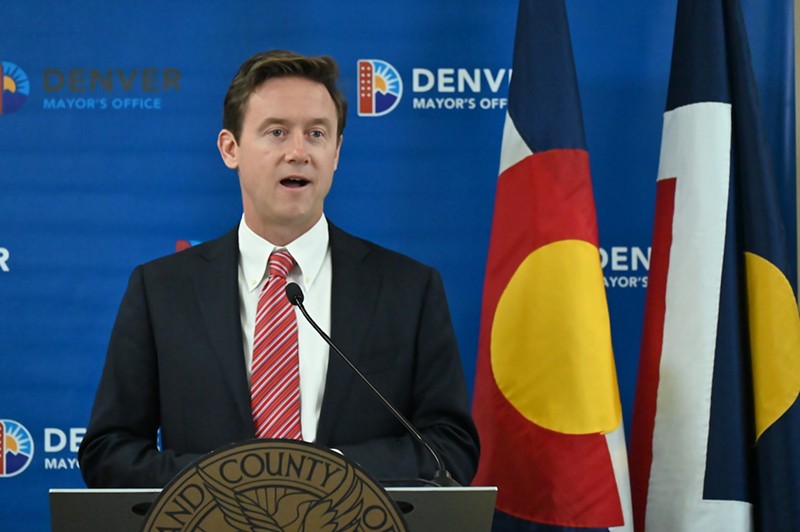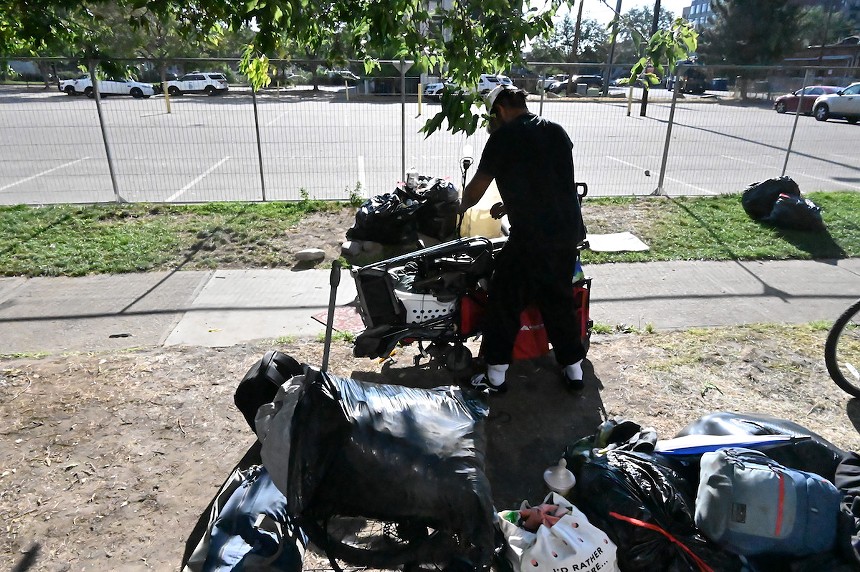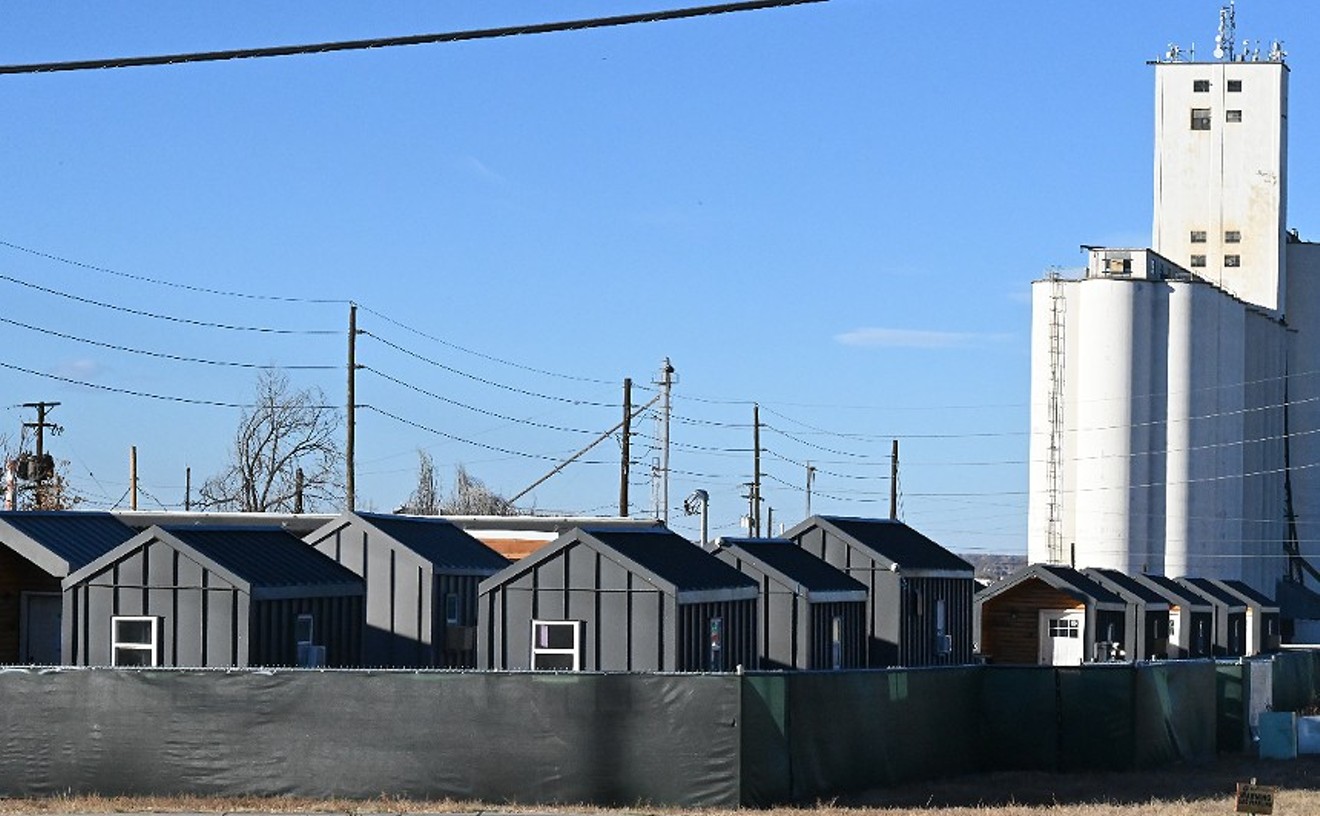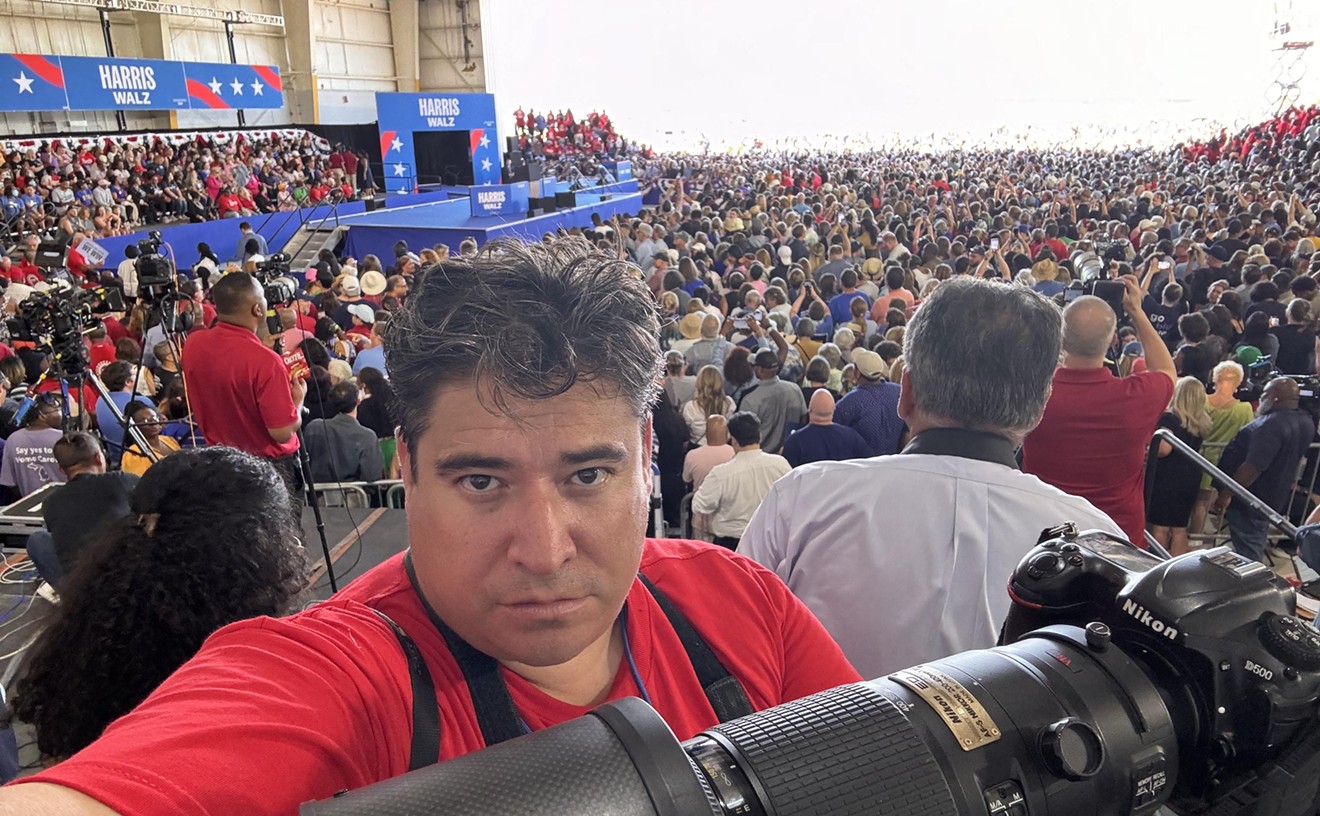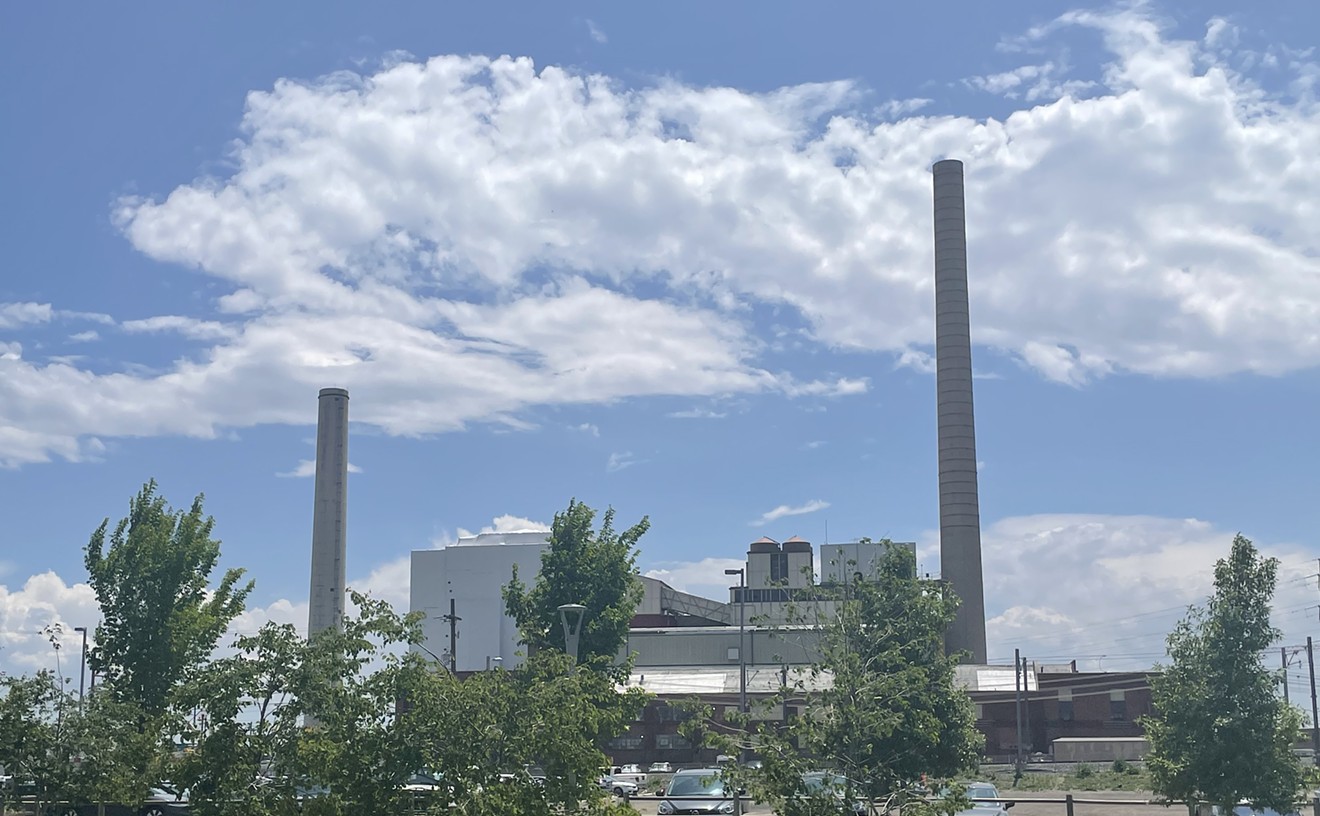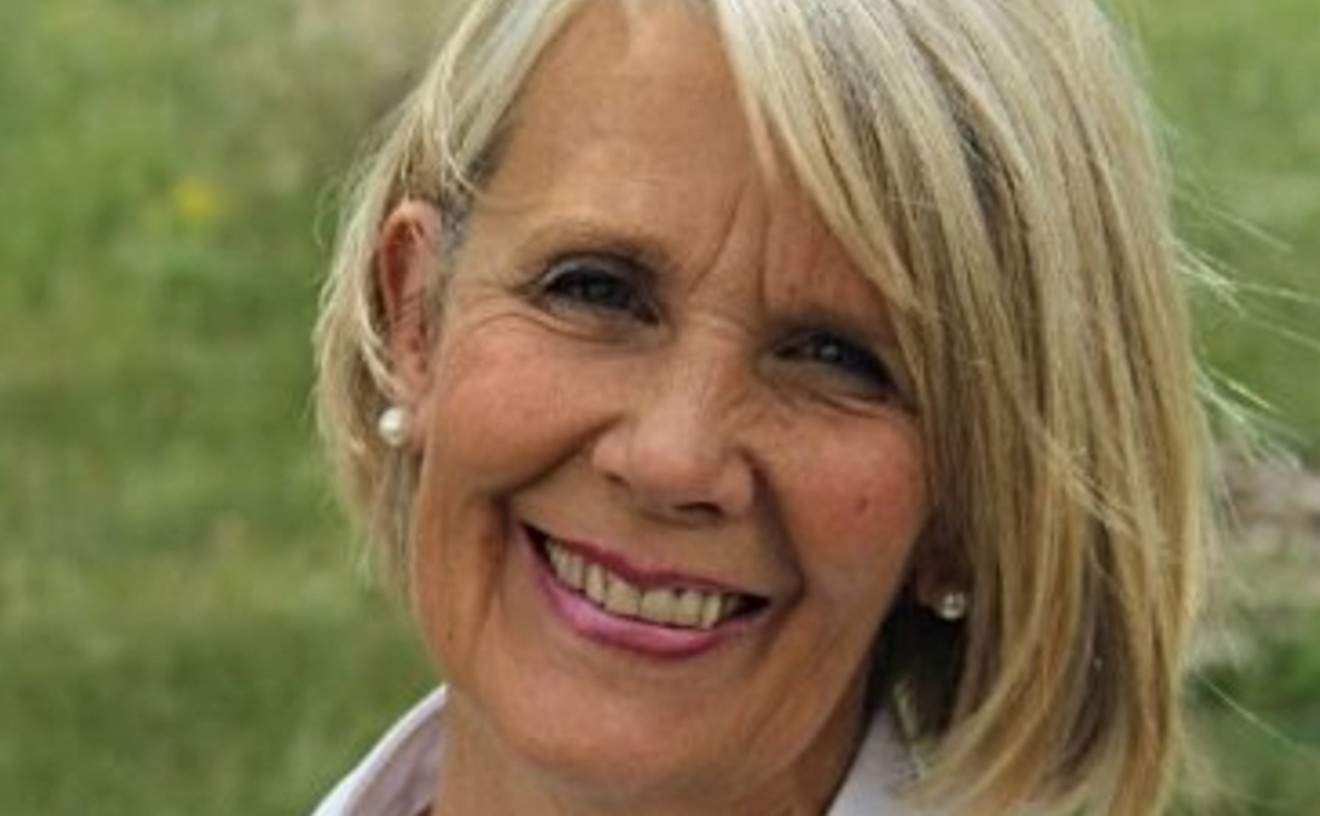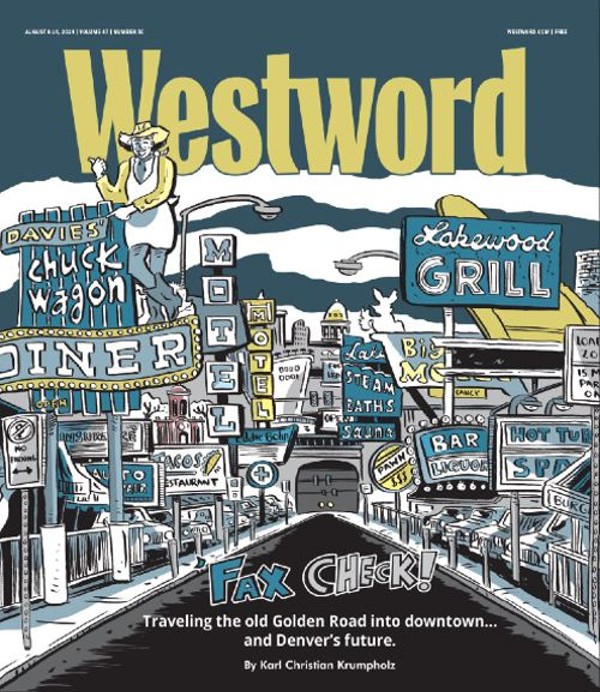However, the locations won't be taking in residents until November or December at the earliest, according to Johnston, which means people targeted in sweeps before then are still being left out on the streets.
"I still don't know where I'm going," said resident Kevin Anderson on Thursday morning while standing near 17th Avenue and Logan Street, looking in the direction of where his tent was set up.
"I heard that the city had already bought, like, a hotel and was turning it into housing where we could at least stay temporarily," said Dina Weller, another camp resident. "When is that supposed to happen?"
As part of his public vow to shelter 1,000 homeless people by the end of 2023, Johnston has said that he will be conducting encampment sweeps in cases of public health and safety emergencies. City workers were scheduled to perform the sweep near 17th and Logan between 7 a.m. and 10 a.m. in response to a shooting that occurred on the 1700 block of Logan on August 21; at least two victims were reported.
"They're making us move because it's unsafe, but the car got shot up right there when my tent got shot up, and two of our people got randomly hit," Weller said, noting how camp residents feel they're being used as scapegoats.
"It's unsafe for us, but it's safe for everybody to park their cars here. What's the deal with that?" she asked. "I think it's just their excuse to get in and make us move. They couldn't use the debris or anything, because we kept it clean."
Thursday's sweep is Johnston's second during his administration; the first went down three weeks ago at 22nd and Stout streets. The mayor has publicly acknowledged that the city does not currently have a place where people who are displaced can be relocated, but officials are working on it.
"We now have a path to deliver 1,000 units of housing," Johnston said at a press conference on Thursday in reference to the eleven planned micro-community sites. But that didn't matter to those living at the Logan encampment.
"We're still trying to figure out where we can go," Anderson reiterated. "I'm with my friends. ... One of them is down by the river, next to the Crossroads shelter. I wouldn't mind being there, but I don't know."
Throughout the morning, people living at the encampment — which wrapped around the 1700 block of Logan Street between 17th and 18th Streets — were spotted packing up their tents, clothes, bikes, saltine crackers, dog food, tarps and whatever else they had in their possession into vehicles belonging to friends and volunteers.
Throughout the morning, people living at the encampment — which wrapped around the 1700 block of Logan Street between 17th and 18th Streets — were spotted packing up their tents, clothes, bikes, saltine crackers, dog food, tarps and whatever else they had in their possession into vehicles belonging to friends and volunteers.
The city initially gave the residents less than 24 hours' notice to be gone by 10 a.m. Wednesday, August 23. But the deadline was later pushed back to August 24 after support groups started voicing their outrage online.
Johnston said Thursday that he approved the sweep because the city had "some real concerns about safety for both the unhoused residents there and the housed neighbors" in the area. Another violent incident had allegedly happened at the encampment a month earlier, according to the mayor.
"The chief [of the Denver Police Department, Ron Thomas] and I evaluated, and at that point, we believe we should keep the encampment safe," Johnston said. "They're afraid. They're sleeping in a tent in the middle of the night. That doesn't provide them access to safety. We were very worried about the safety of the unhoused residents on the premises. That's why we moved them."
On Wednesday, city workers gave camp residents a notice that the area would "temporarily close" and be swept. The mayor later revised that deadline and gave them the extra day "to make sure they had time to gather their things and be able to move," he said.
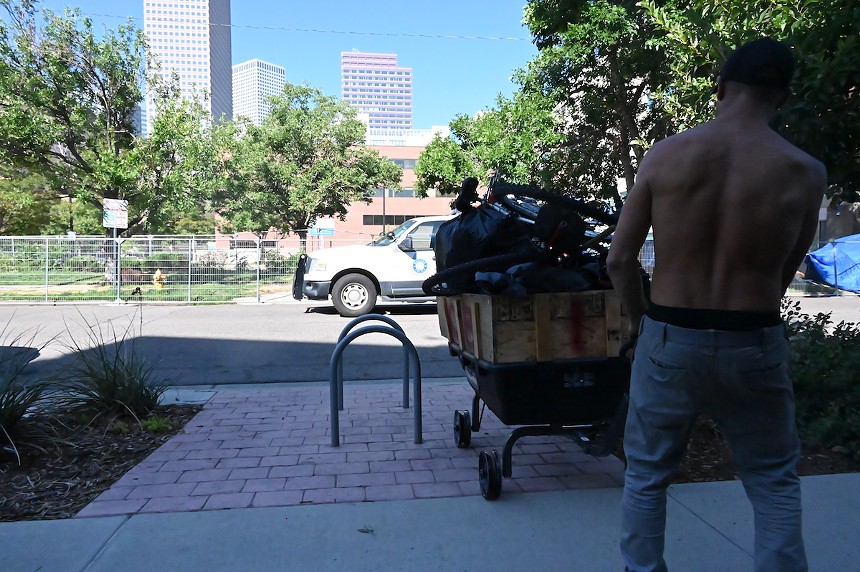
A homeless Denver resident who asked only to go by Dustin pulls a wagon full of his stuff onto the sidewalk as Denver Police begin forcing people to leave the encampment at 18th Avenue and Logan Street.
Bennito L. Kelty
"This underscores the urgency of why this strategy is so important," he adds. "Right now, when we look at places where we have tiny home communities, where we have safe outdoor spaces, we have dramatic reductions in police activity."
Along with the notice to vacate, city workers handed residents a list of "recommended locations to move to" on a rectangular slip of paper. Below the title, it read, "Disclaimer: all locations run the risk of being swept or harassed. These were scouted as some of the least likely spots to be bothered due to the public right-of-way laws." The list included places like Emerson and Park Avenues, 20th and Champa streets, 16th Avenue and Grant Street, 8th Avenue and Logan, and 17th Avenue and Downing Street. It had notes next to each suggested spot saying things like "Park rangers might still bother you," "Trash & porta potty services provided," "Fenced off," "In the shade," "In the grass," "Trash services provided here," and "the City is not a huge fan of this location (8th Avenue and Logan Street — next to the Governor's Mansion)." But are homeless residents actually reading this stuff?
"I haven't really had the chance to sit down with my phone and look these places up and figure out where I'm going," said one camper near 17th and Logan named Dustin, who was spotted hauling three wagons and a couple of trash bins full of his belongings.
"I'm moving twenty yards at a time," he told Westword.
A map of Johnston's planned micro-community sites, which was posted online Thursday, represents "an initial list" of locations that the city will be using, according to Johnston, but "they're not a complete and final list." The city is still negotiating with private landowners to secure other housing locations, but what is known is that every city council district is slated to host a site.
"The better solution is to open a motel, start putting [homeless residents] in there," Anderson suggested. "I mean, I'm sure there's a couple more motels that are shut down. I'd rather have permanent housing, but I'll take a transitional place as long as I don't gotta be out here."
Each location selected for the micro-community sites "represents all regions of the city," according to Johnston. "They actually represent geographical diversity throughout the city, and they do represent socio-economic diversity where they're located," he said. "We were intentional about making sure we have an equitable map."
The sites will still need to be evaluated, but city officials can now start clearing the way to build housing.
"We'll still have conversations with the community about the logistics, how it might work, how it might operate, when they might come online," Johnston said. "But we'll now begin the process of permitting, if there's ownership change required, neighborhood conversations."
The eleven sites chosen by Johnston include "publicly owned land by the city, they include land owned by CDOT or by the Denver Housing Authority, or by Denver Health and Hospital [Authority], and they include private landowners," according to the mayor. "Some of them are hotel sites, some of them are open plots of land that we can use for micro-communities," he said. "But we're very excited about the incredible work we've done."
While most are sites for future micro-communities, there's at least one that has a different purpose: the Best Western Central Park Hotel at 4595 Quebec Street, which the city purchased for $26 million to turn into 194 units of supportive housing.
The location of the Stay Inn on 12033 38th Avenue will be used as both a converted hotel and a micro-community, according to Johnston's map. As many as two people will be allowed to stay in a hotel unit at a time, the mayor said Thursday.
"Most of the others are all vacant plots of land where we look to site tiny homes or pallet homes," he explained.
The pallet homes or shelters that will be going in at each of the locations are shed-like units. Denver City Council will vote on Monday, August 28, to approve a $7 million contract to build 200 pallet shelters across three different locations. The micro-communities will each have several dozen units for up to two residents per unit.
Johnston said some factors that went into choosing the micro-community and converted hotel sites were proximity to public transit, availability of utilities, zoning requirements to build housing, distance from schools and environmental safety.
At both the converted hotels and micro-communities, residents will have to accept a zero-tolerance policy for violence, according to city officials, and selling drugs will be prohibited, though no sobriety requirement will actually be in place to monitor anyone. Each location will be staffed at all hours of the day, and residents will be able to bring their pets to live with them. The housing will also offer mental health, substance abuse and career services — and will be free, according to city officials. But homeless residents are skeptical, especially after Johnston kicked them to the curb on Thursday with nowhere to go following his repeated vow to be "respectful" and "dignified" in his handling of encampment sweeps.
"Mayor Mike Johnston made us a lot of promises," Weller said. "We kept our space clean. We kept each other safe. We did what we were supposed to do. Why can't he?"

